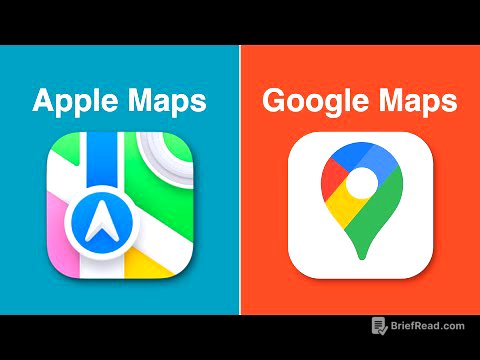TLDR;
This video introduces "The Shallows" by Nicholas Carr, exploring technology's impact on our brains and reading habits. It discusses how constant connectivity and multitasking affect focus, decision-making, and cognitive abilities. The speakers share personal experiences and insights on neuroplasticity, the importance of focused thinking, and strategies for using technology purposefully rather than being controlled by it.
- The book "The Shallows" by Nicholas Carr is discussed, focusing on the impact of technology on our brains.
- Neuroplasticity is explained as the brain's ability to adapt and change, which can be influenced by technology use.
- The discussion covers the negative effects of technology on focus, decision-making, and cognitive abilities.
- The speakers emphasize the importance of purposeful technology use and share strategies for maintaining a balanced life.
Introduction to "The Shallows" [0:00]
The speakers introduce Nicholas Carr's book, "The Shallows," as the focus of their two-part discussion. They express concern about the pervasive influence of technology, particularly social media, on people's lives, noting how it often leads to a shallow engagement with information compared to the depth one can achieve through reading books. The initial example contrasts people reading newspapers in a focused manner with modern individuals passively scrolling on their phones, highlighting a perceived decline in attention and depth of engagement.
The Author's Personal Experience [1:58]
Nicholas Carr, the author, was once an avid reader who later heavily embraced technology. Around 2009, he realized that his dependence on technology was causing him to miss something in his life. The speakers discuss how technology offers condensed information and easy access, but reading requires active processing, memory storage, and connecting ideas to personal experiences, making it a more complex activity.
The Medium is the Message [4:39]
The speakers introduce Carr's concept that "the medium is the message," suggesting that the way we consume information (through technology) has a more significant impact than the content itself. They use the example of Instagram to illustrate how addiction to the platform can overshadow the ideas presented within it. This leads to a discussion on how technology deeply affects the functioning of our brains.
Neuroplasticity and the Brain [5:31]
Neuroplasticity, the brain's ability to change and adapt, is discussed. It's explained that the brain can adapt to both positive and negative influences. Learning new skills, healing from injuries, and even imagination can alter brain structure and function. Reading engages these processes, while excessive technology use can lead to the opposite effect, diminishing brain function.
The Impact of Technology on Brain Function [8:54]
The discussion shifts to the negative impacts of technology on the brain, such as reduced focus and difficulty concentrating. Technology can make parts of the brain inactive, leading to problems with time perception and decision-making. The speakers note that while technology like clocks and maps provided direction and accuracy in the past, current technology, particularly the internet and social media, can be distracting and detrimental.
Evolution of Media and Human Connection [11:00]
The evolution of media from community plays to TV, YouTube, and now social media is examined. Each transition has narrowed attention spans and reduced human interaction. The speakers express concern that emerging technologies, like AI glasses, further isolate individuals, diminishing human interaction and potentially harming cognitive functions.
Distraction and Cognitive Overload [14:44]
The speakers discuss how constant connectivity and multitasking lead to distraction and cognitive overload. The brain is bombarded with information, making it difficult to focus and make thoughtful decisions. This overload affects the prefrontal cortex, which is responsible for judgment, problem-solving, and decision-making.
Loss of Cognitive Skills [19:03]
The speakers identify three cognitive skills that are diminished by high cognitive load: learning capacity, the ability to collect relevant information, and the ability to develop a deeper understanding of subjects. They argue that while technology provides instant information, it often leads to a shallow understanding and an inability to see the broader picture.
The Rayban and Facebook Glasses [21:46]
The upcoming Rayban and Facebook glasses are mentioned as an example of how technology is further altering our skills and brain function. The speakers express concern that outsourcing our brain functions to technology diminishes our capacity to think deeply and make informed decisions.
Benefits of Technology [23:39]
The speakers acknowledge that technology has benefits but emphasize that these benefits can also be harmful. They discuss how technology affects visual-spatial intelligence, hand-eye coordination, and reflex responses. The immediate reactions and outsourcing of information can hinder the process of analyzing and making thoughtful decisions.
Conclusion and Call to Action [25:28]
The speakers conclude the first episode by encouraging viewers to share their experiences with technology and social media. They highlight the positive changes that some viewers have made in their lives by using technology purposefully. The core message is to use technology, not be used by it. They invite viewers to join their WhatsApp group and share their stories to inspire others. The next episode will explore how to overcome the negative effects of technology and promote a more balanced life.









